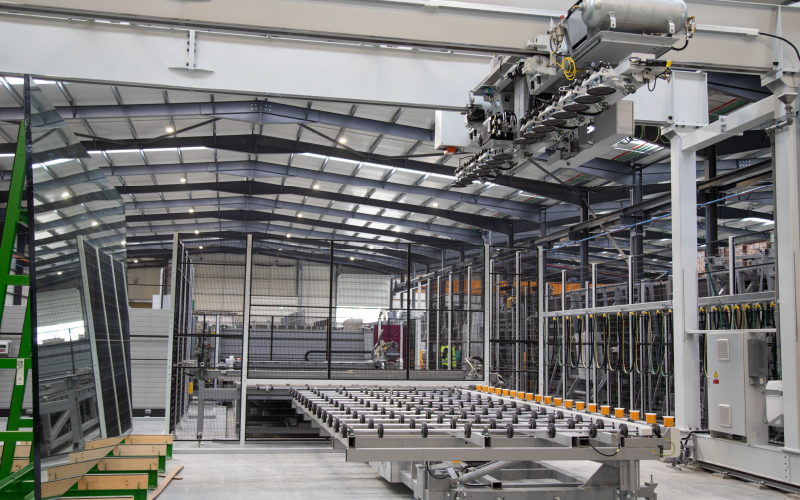Redefining the traveller's journey from origin to destination
The LUGGIT E2E operation redefines the travel experience by taking luggage out of the traveller's path, from origin to final destination.
Vitrochaves is modernising production with a new automated factory, supported by COMPETE 2030. Joaquim Chaves talks about the impact and innovations of this investment.

Vitrochaves’ project, co-financed by COMPETE 2030, aims to increase production capacity by creating a fully automated factory using IoT, artificial intelligence and sensorisation technologies. This new plant will enable the production of premium glass, such as dual-function glass (TV and mirror) and high-quality thermo-acoustic glass, reinforcing the company’s position in the market.
The new factory, built next to the current facilities, will be highly robotised and will operate with minimal supervision, increasing the production of double glazing, laminated and monolithic glass. This modernisation will make it possible to optimise production processes and increase the company’s operational efficiency.
We interviewed Joaquim Chaves, Director of Vitrochaves, who shared the company’s strategic vision as part of its latest innovation project, co-funded by COMPETE 2030.

What recent progress do you see in the evolution of Vitrochaves?
I’m delighted to report that Vitrochaves is taking another step forward in honour of innovation, creativity and development. We have completed another important moment in our progress since 1980 and can now show off a new factory extension – a fully automatic double glazing line, which has extended the factory’s production area by 6000 m2.
How is Vitrochaves responding to the demands of growing markets?
Vitrochaves has implemented an innovative solution in the production of double glazing in order to cope with the company’s growth in the most demanding markets in the architectural and construction sectors.
What factors influenced Vitrochaves’ decision to choose the automated production process?
Our decision was influenced by the high level of automation, energy savings, quality and labour. Taking advantage of the extensive experience of one of the largest manufacturers of this equipment, we were able to develop a fully automated process, synchronised with the entire factory. This addition to the company allows us to manufacture with better quality, but also in greater quantity.
How has COMPETE 2030 contributed to the success of Vitrochaves’ new project?
We are now fully operational and are extremely satisfied with the performance of the equipment, which has exceeded expectations. In order for this to happen, we had the support of COMPETE 2030, which supports the project by 40 per cent, a very important sum for Vitrochaves, and we are very grateful for this great support.
Support from COMPETE 2030
The project has an eligible investment of 8.6 million euros, of which 3.4 million are incentives from the ERDF through COMPETE 2030.
Links
Vitrochaves | Website
Vitrochaves | Facebook
Vitrochaves | Linkedin
04 March 2026